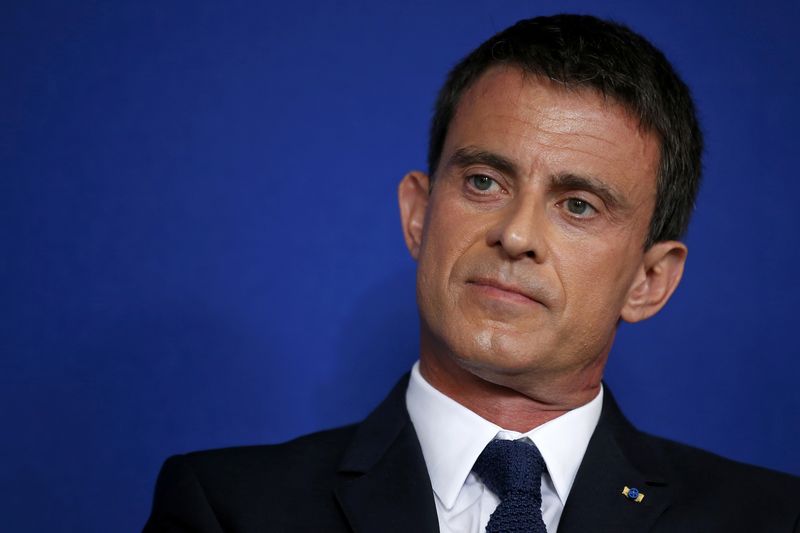PARIS (Reuters) - French Prime Minister Manuel Valls pushed a flagship economic reform bill further on its way through parliament without a vote for the second time in four months on Tuesday, prompting rebel backbenchers to slam an "admission of weakness."
The government's decision to use a constitutional device to avoid a vote in the second reading of the deregulation bill will expose it to a no-confidence vote on Thursday. But it is all but certain to survive that because those same rebels in the ruling Socialist party are unlikely to want to trigger new parliamentary elections.
But the move also shows the government still fears the trouble-making capacity of the rebels despite the party as a whole having closed ranks behind Valls and President Francois Hollande at a party congress earlier this month.
The bill cuts red tape in a wide variety of areas including allowing more shops to open on Sundays and evenings, speeding up job dismissal procedures, opening competition for long-distance bus routes and exposing legal professions to more competition.
The government's decision to use a constitutional mechanism that allows it to avoid a vote, as it did for the first reading in February, triggered complaints that the reformist Valls was being authoritarian.
"This is not about being authoritarian, this is about being efficient," Valls responded on Tuesday. "What matters is to go quickly."
"For too long, France has been victim of blockages that thwart its economy and slow activity," he later told lawmakers.
Earlier, Hollande said he wanted the reforms to be passed into law by France's July 14 national holiday.
The reform bill helped persuade France's EU peers give it more time to get its public finances into line.
It also includes measures announced last week to encourage small firms to hire by making labour rules more flexible and cutting costs. These were condemned by some within the ruling Socialist party and could have made it more difficult for the government to get a positive vote.
While the head of France's main employers' union Pierre Gattaz said avoiding a parliamentary vote was a good decision, former Education Minister Benoit Hamon - one of the more high-profile rebels - said it was "an admission of weakness."

Socialist party spokesman Hugues Fourage said it was time they stopped battling their own government. "It's not Manuel Valls who is moving away from the left - it's the rebels that are moving away from the Socialist party," he told reporters.